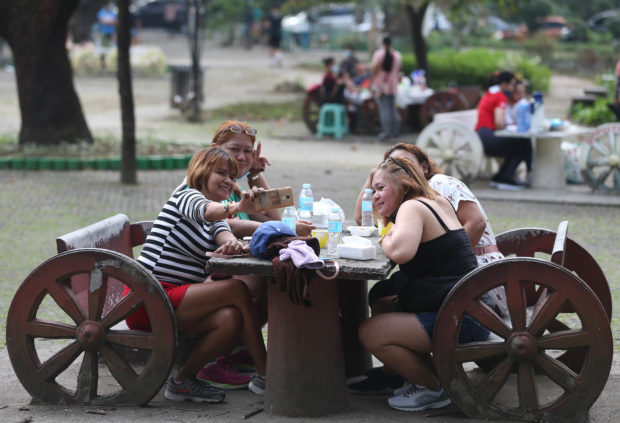
By: Maricar Cinco – Reporter / Philippine Daily Inquirer / February 22, 2021
Health experts on Sunday cautioned the government against easing to the lowest level coronavirus curbs throughout the country, especially in Metro Manila, after an independent research group last week reported a slight upward trend in COVID-19 cases in the metropolis, with a variant of the virus possibly causing the spike.
Metro Manila and much of the country are under strict general community quarantine, but the National Economic and Development Authority (Neda) has recommended downgrading the curbs to modified general community quarantine to allow the reopening of up to 95 percent of the economy and pull the country out of recession caused by the coronavirus pandemic.
Health experts on Sunday cautioned the government against easing to the lowest level coronavirus curbs throughout the country, especially in Metro Manila, after an independent research group last week reported a slight upward trend in COVID-19 cases in the metropolis, with a variant of the virus possibly causing the spike.
Metro Manila and much of the country are under strict general community quarantine, but the National Economic and Development Authority (Neda) has recommended downgrading the curbs to modified general community quarantine to allow the reopening of up to 95 percent of the economy and pull the country out of recession caused by the coronavirus pandemic.
2,400 new cases a day
Last week, OCTA warned that new coronavirus infections in Metro Manila could increase to more than 2,400 a day by late March if the restrictions were lifted prematurely.
Healthcare Professionals Alliance Against COVID-19 (HPAAC) maintains that protective measures and a population able to protect itself must be in place before the government eases the restrictions.
“It shouldn’t be a case of black and white, close or open, but the question must be, ‘Are we ready?’” said Dr. Antonio Dans, spokesperson for HPAAC.
He said HPAAC last week met with Transportation Secretary Arthur Tugade to discuss better public transportation and the opening of more bike lanes in the city.
The group also advocates for leisure in open-air places like parks rather than reopening closed commercial places like movie houses and shopping malls.
Dans said the group would send a letter to Malacañang on Monday to lobby for an executive order that would allow internet providers access to satellite connection.
“Businesses, [people] working from home, education, and even for [the] health [sector] to improve contact tracing… we need a better internet connection [before] we open up,” he said.
Restoration of production
But Acting Socioeconomic Planning Secretary Karl Kendrick Chua insisted on Sunday that placing the entire country on modified general community quarantine would bring back nearly all the economic activities that existed before the pandemic struck last year.
The pandemic forced the government to place the country on hard lockdown, preventing an explosion of coronavirus infections but stopping 75 percent of the economy. The result was a contraction of 9.5 percent, the worst performance of the country’s economy in decades.
Chua, who also heads Neda, proposes freeing more public transport and lowering age restriction to complement the restoration of production.
Children, according to him, were a major consumption driver before the pandemic, as most families dined out or shopped with kids in tow.
But his predecessor, former socioeconomic planning chief Ernesto Pernia, objects to full-country easing of curbs.
“For me, [it] should be selective. It shouldn’t be imposed in all areas,” Pernia said in a television interview on Sunday.
“There are still high-risk areas. The restrictions should be kept in place in these areas,” he said.
—With reports from Ben O. de Vera and Katrina Hallare